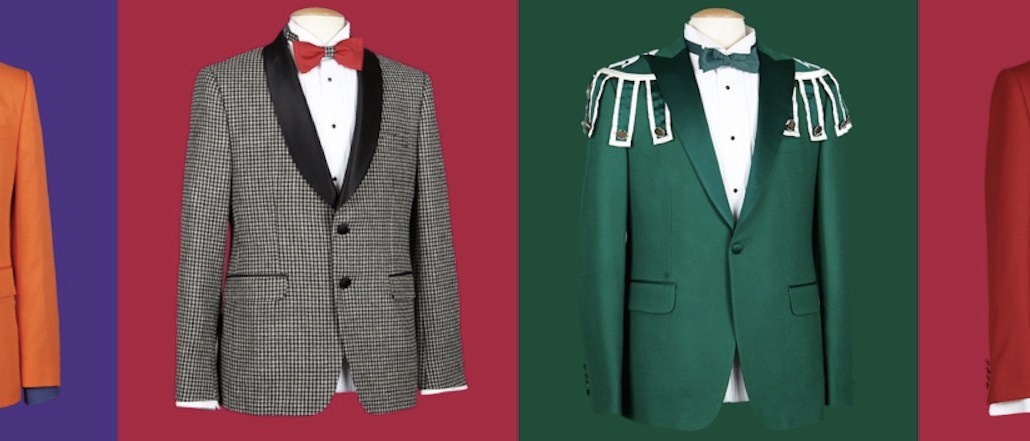Secure your place at the Digiday Media Buying Summit in Nashville, March 2-4
George Zimmer designed a line of college football-themed tuxes for ESPN

You might regret the way you look on New Year’s Eve.
George Zimmer, America’s avuncular sartorial ambassador, teamed up with ESPN to create a line of college football-themed tuxedos for the night’s two bowl games, called “The New Year’s Eve Collection.”
The line consists of four suits draped in the team’s colors: Clemson University (a very bright orange), University of Alabama (a “classic houndstooth” made from wool), Michigan State University (that includes “stylish epaulettes”) and University of Oklahoma (also made from wool, but includes a wagon wheel button). Combined, the cheesy designs are make for one bright shade of silly publicity.
Enticing? Well, the Zimmer-designed tuxes won’t be sold in stores — to say nothing of the Men’s Warehouse, where he was forced from his chief executive role in 2013. Fans cans enter to win one of 10 suits on his startup’s website, Generation Tux.
“New Year’s Eve is one of the most festive occasions of the year – and one that certainly calls for a tux,” Zimmer told ESPN. “With this collection, we’re making sure guys can now choose to show off their team spirit in unprecedented style.”
“Unprecedented” is certainly word that many aren’t using to describe the gaudy tuxes. For The Win described them more accurately, calling them “plum awful.”
More in Marketing

Future of Marketing Briefing: AI’s branding problem is why marketers keep it off the label
The reputational downside is clearer than the branding upside, which makes discretion the safer strategy.

While holdcos build ‘death stars of content,’ indie creative agencies take alternative routes
Indie agencies and the holding company sector were once bound together. The Super Bowl and WPP’s latest remodeling plans show they’re heading in different directions.

How Boll & Branch leverages AI for operational and creative tasks
Boll & Branch first and foremost uses AI to manage workflows across teams.





